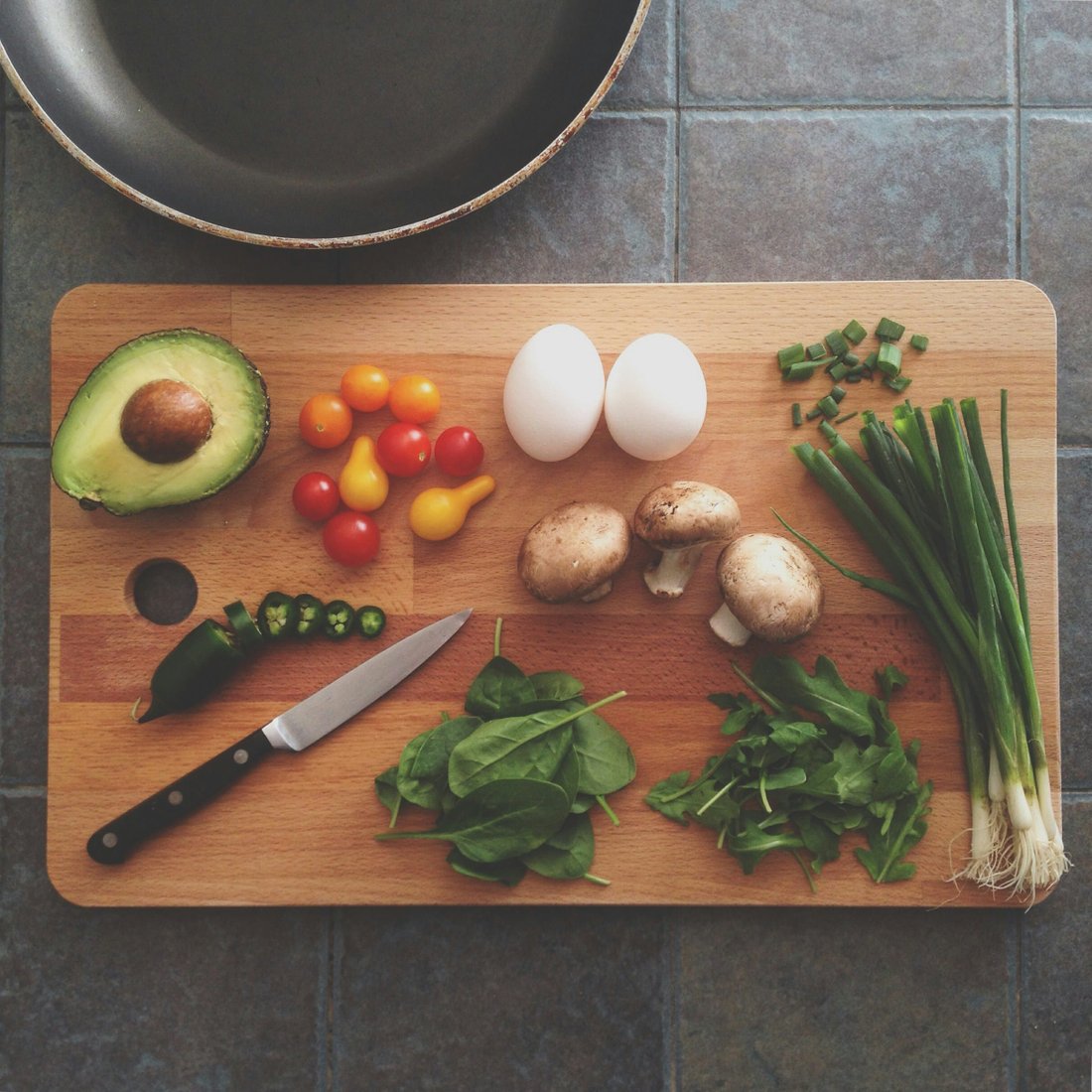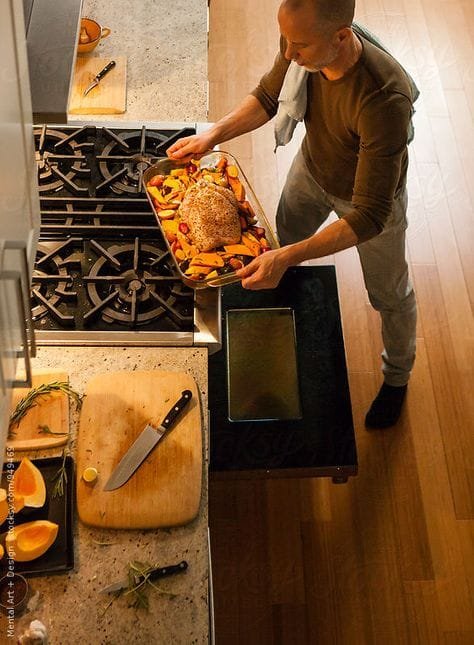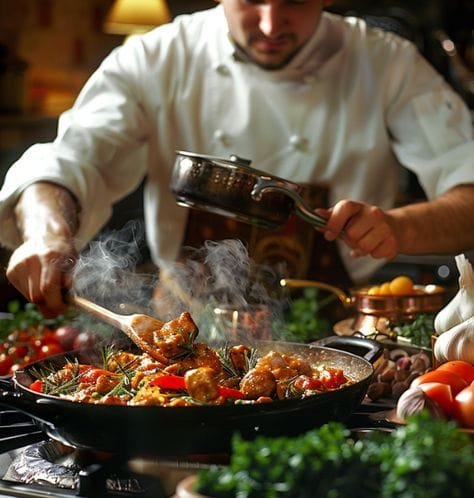Starting your journey in the kitchen can feel overwhelming, but with the right guidance, cooking becomes an enjoyable and rewarding experience. These 10 essential cooking tips for beginners are designed to help you build confidence, improve your skills, and create delicious home-cooked meals with ease. From learning basic techniques to understanding the importance of organization, each tip will bring you closer to mastering the art of cooking. So, grab your apron and get ready to elevate your kitchen game!
1. Start with a Clean and Organized Workspace
Before you even turn on the stove, take a moment to clear and organize your kitchen. Having a clean, clutter-free workspace allows you to focus on cooking rather than searching for ingredients or tools. Make sure all your essential tools—like knives, cutting boards, and pots—are within easy reach. This habit will not only save time but also make cooking more enjoyable and stress-free.
-Quick Tip
Wipe down countertops and gather all ingredients before you start cooking. This practice, known as “mise en place” (French for “everything in its place“), helps streamline the cooking process.
It may seem simple, but reading the recipe from start to finish is crucial. This gives you an idea of the cooking steps, ingredients, and required tools. By understanding the recipe beforehand, you can prepare properly and avoid any surprises mid-cooking, such as needing extra prep time or missing an ingredient.
-Quick Tip
Check the preparation time and ensure you have all the ingredients. If not, consider suitable substitutions to avoid last-minute grocery trips.
Ready for more comforting, healthy meals? Check out the full recipe collection for more plant-based dinner ideas.
Good knife skills make a world of difference in the kitchen, allowing you to chop, dice, and slice efficiently. Knowing how to use a knife properly not only saves time but also enhances the presentation of your food. Begin by learning a few basic cuts like chopping, mincing, and slicing. It’s also essential to use a sharp knife, as dull knives can be dangerous and make cutting more difficult.
-Quick Tip
Practice cutting soft vegetables like tomatoes and bell peppers to improve control. Remember, a sharp knife is safer and more effective than a dull one.
Seasoning is one of the most important aspects of cooking, as it brings out the natural flavors of your ingredients. Don’t be afraid of salt and pepper—these two simple seasonings can make a huge difference. Always taste your food as you cook to adjust the seasoning and find the right balance. Experimenting with fresh herbs, spices, and even citrus can add depth and flavor.
-Quick Tip
Start with a small amount of salt and pepper, then adjust to taste. Freshly ground black pepper and sea salt often provide a better flavor than pre-ground varieties.
While you don’t need a kitchen full of gadgets, having a few quality pots, pans, and knives can elevate your cooking experience. A well-made skillet, a sharp chef’s knife, and a sturdy cutting board are worth the investment, as they make cooking easier and improve your results.
-Quick Tip
Consider buying kitchen tools gradually, starting with a versatile chef’s knife, a heavy-duty skillet, and a medium-sized saucepan. These essentials can cover most beginner recipes.
Learning to control heat is crucial in cooking. Using the right heat level can make or break a dish, as different ingredients and techniques require specific temperatures. Medium heat is typically best for sautéing, while low heat is ideal for simmering sauces or stews. High heat is reserved for quick cooking methods like searing or stir-frying.
-Quick Tip
If you’re unsure, start with a lower heat setting and increase as needed. Remember, it’s easier to raise the heat than to fix burnt food.
Allowing food to rest, especially meat, can significantly improve flavor and texture. Resting helps juices redistribute, keeping meat moist and tender. The same principle applies to baked goods, as letting them cool slightly can enhance their texture and make slicing easier.
-Quick Tip
For meats, let them rest for at least 5 minutes before cutting. For baked goods, allow cooling for about 10-15 minutes before serving.
Ready for more comforting, healthy meals? Check out the full recipe collection for more plant-based dinner ideas.
Fresh ingredients make a huge difference in flavor. Whenever possible, use fresh herbs, vegetables, and spices for a vibrant taste and aroma. Buying produce in season is often more affordable and flavorful, making your meals taste better without extra seasoning or additives.
-Quick Tip
Experiment with herbs like basil, parsley, and cilantro to add freshness and flavor. Fresh garlic, ginger, and lemon juice can also brighten up many dishes.
Focus on mastering a few simple cooking techniques before diving into complex recipes. Techniques like roasting, sautéing, boiling, and simmering are foundational methods that form the basis of countless recipes. By building your confidence with these methods, you’ll feel more prepared to tackle new and more challenging dishes.
-Quick Tip
Try roasting vegetables or chicken in the oven as a beginner-friendly technique. Sautéing onions, garlic, and bell peppers in a skillet is another good practice for building skills.
Tasting your food as you cook is essential to creating a balanced, delicious dish. Adjusting the seasoning, adding a touch of acidity, or thickening a sauce based on taste helps you develop a deeper understanding of flavors. This habit will improve your cooking skills and ensure that your meals are as flavorful as possible.
-Quick Tip
Keep a small spoon nearby and taste your dish at different stages. This lets you fine-tune flavors as you go, rather than waiting until the end.
Looking for more easy and healthy recipes? Visit Viral Recipes for a wide range of tips and tricks for making quick and nutritious dishes your whole family will love!
For more nutritious and delicious recipes, check out our collection of healthy vegetarian dishes.
By following these essential cooking tips for beginners, you’ll soon find yourself navigating the kitchen with confidence and ease. Home-cooked meals can be simple, enjoyable, and incredibly rewarding when you have the right tools and knowledge. Embrace each step of the cooking process, enjoy the flavors, and remember—practice makes perfect. Happy cooking!






